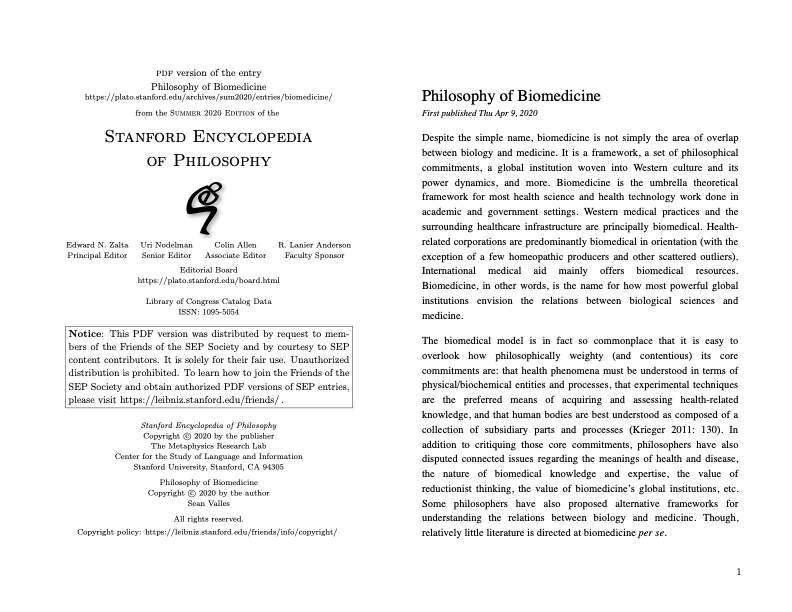|
Metaphysical gadfly Sam Harris has stirred the pot once again by raising the issue of whether a general theory of ethics can be based solely on a scientific foundation. In an article for the Huffington Post, Harris responds to feedback he has received on a recent talk he gave at the TED conference in which he discusses his new book on the relationship between science and morality. In this article defending his speech, Harris does two things. First, he affirms that moral statements have truth value. (Ironically, in this respect, he ends up giving aid to many of the religious conservatives by which he made his name excoriating.) Second, he argues that all moral statements can be grounded in a robust science of the mind. In this respect, he reaffirms his commitment to naturalism and to defend the tenets of the new atheism. He spends most of his article responding to an essay by Sean Carroll in which Carroll responds to Harris’s TED speech. While Harris and Carroll agree on the definition of science and even what a “science of morality” might look like, Harris takes issue with Carroll’s claim that a science of morality is possible (even in principle). Harris’s primary quibble with Carroll is with what he takes to be Carroll’s moral and epistemic skepticism regarding moral truth which is rooted in a largely inaccessible and varied inner-subjective experience. New atheists like Harris, Dennett, and Dawkins eschew postmodern thought mainly on the grounds that all truth is scientific truth and therefore in principle objective. That is, theoretically science can provide any inquirer with exhaustive knowledge about any true fact (practically science is no where near this ideal but that’s merely a factor of the current state of the art). This would seem to include any fact about a person’s psychology at any given moment since psychological facts are reducible to “facts about human neurophysiology.” If there are facts that are in principle out of the reach of an ideal science—if fact and meaning are not coextensive–naturalism as a comprehensive worldview would, at the very least, need to be modified. Harris’s consequentialism leads him to conclude that not all humans are equally valuable since one life may have a greater ability to produce good than another. It also has epistemic implications about ethical truth. Individual value judgments when reduced to particular brain states just have to turn out to be similar (or identical) at the end of the day even if the people that hold those judgments say they’re different. Person A saying he believes torturing babies for fun is a good gives us no reason whatever to believe that person’s A moral claim corresponds to the truth of the matter. If A’s brain state is similar to B’s who disagrees with A’s stated moral judgment then A and B share the same moral view regardless of what A claims.The moral fact about this act is reduced to the neurophysiology and any claims to the contrary can’t be taken seriously. Harris likens the situation to epistemic claims about what constitutes a valid explanatory method. Here Harris goes after postmodernists who might question the validity of logic and evidence as the foundation for scientific reasoning. If a postmodernist questions the validity of logic, what possible argument could be given in response? The very question is a non-starter. “The right question is, why should we care what such a person thinks in the first place?” Harris says. Similarly, if a person says she believes that torturing babies for fun is a moral good, what possible moral response could we give? Harris thus moves the analysis of ethical principles from the squishy ground of moral philosophizing to the terra firma of physical states of the brain and seems to claim that the brain state is where the true moral truth value lies. He simply finds it hard to believe that an objective analysis of brains will vary wildly between two humans with normal physiology. While the desire to move ethics onto firmer and more consistent ground is headed in the right direction, Harris gives up too much in his desire to avoid metaphysics. Type-type identity theories in philosophy of mind are deeply problematic and attempts to articulate a complete epistemology on such theories have foundered. Attempting to move ethics onto such unstable ground may end up proving much the worse for ethics. As Daniel Robinson has said, if you tell your doctor you’re in pain and he disagrees, it’s time to find a new doctor. |
 Sam Harris seems to be no lover of philosophy: “I am convinced that every appearance of terms like “metaethics,” “deontology,” “noncognitivism,” “anti-realism,” “emotivism,” and the like, directly increases the amount of boredom in the universe.” |
What is Disagreement? – Part IV
This is Part 4 of a 4-part series on the academic, and specifically philosophical study of disagreement. In Part 1...









